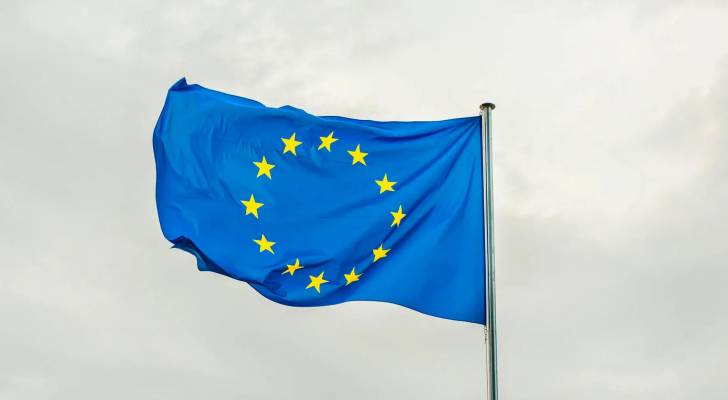The European Union flag. (Photo: Getty Images)
EU fails to align on Russian gas sanctions amid record imports
The European Union (EU) faces growing criticism for its failure to agree on new sanctions targeting Russian gas imports, even as its dependency on Moscow's energy resources persists.
The European Commissioner for Trade Valdis Dombrovskis attributed the impasse to disagreements among member states during remarks at the World Economic Forum in Davos.
“We could not agree on sanctions against Russian natural gas due to a lack of consensus, with some countries opposing the measure,” Dombrovskis said as reported on Politico.
Read more: Oil prices surge past USD 80 amid sanctions speculation
While imports of Russian pipeline gas have decreased significantly—partly due to the Nord Stream pipeline sabotage—shipments of liquefied natural gas (LNG) from Russia continue to surge.
Record LNG imports
According to Politico, In the first 15 days of 2025, EU nations imported a record 837,300 metric tons of Russian LNG, according to data from commodities intelligence firm Kpler. This increase comes after a key gas transit agreement between Russia and Ukraine expired on January 1, with Kyiv declining to renew it.
Slovakia and Hungary, heavily reliant on gas delivered via Ukraine, had pushed for the agreement's extension. Prime Minister of Slovakia Robert Fico even threatened to cut electricity supplies to Ukraine and reduce support for refugees if transit was not resumed, highlighting divisions within the European Union as a unified bloc.
Calls for energy independence
European Commission spokesperson for Climate Action and Energy Anna-Kaisa Itkonen acknowledged that Russian gas remains a significant part of the EU’s energy mix despite efforts to diversify. She announced plans for a comprehensive strategy to eliminate reliance on Russian energy, set to be unveiled by mid-March 2025.
Speaking at the World Economic Forum in Davos, Ukrainian President Volodymyr Zelensky criticized the EU’s continued energy purchases from Russia.
“You cannot keep buying gas from Moscow while expecting security guarantees or support from the Americans. Europe needs to step up and achieve real energy independence,” Zelensky said.
Industrial strains
The transition away from Russian gas has taken a toll on Europe’s industrial sector, as businesses face rising costs from pricier alternative energy sources. This has eroded competitiveness, adding to the urgency of finding affordable and sustainable energy solutions.
The growing role of US LNG
The EU is also considering expanding imports of US LNG to further reduce dependency on Russian supplies. US President Donald Trump has called on Europe to buy more American energy to avoid tariffs and support US fossil fuel exports.
Currently, the US accounts for more than half of Europe’s LNG imports, making it the bloc’s largest supplier. However, German Vice Chancellor Robert Habeck cautioned that further increases in US LNG imports could face logistical and cost-related challenges, stressing that market forces should guide energy decisions.




